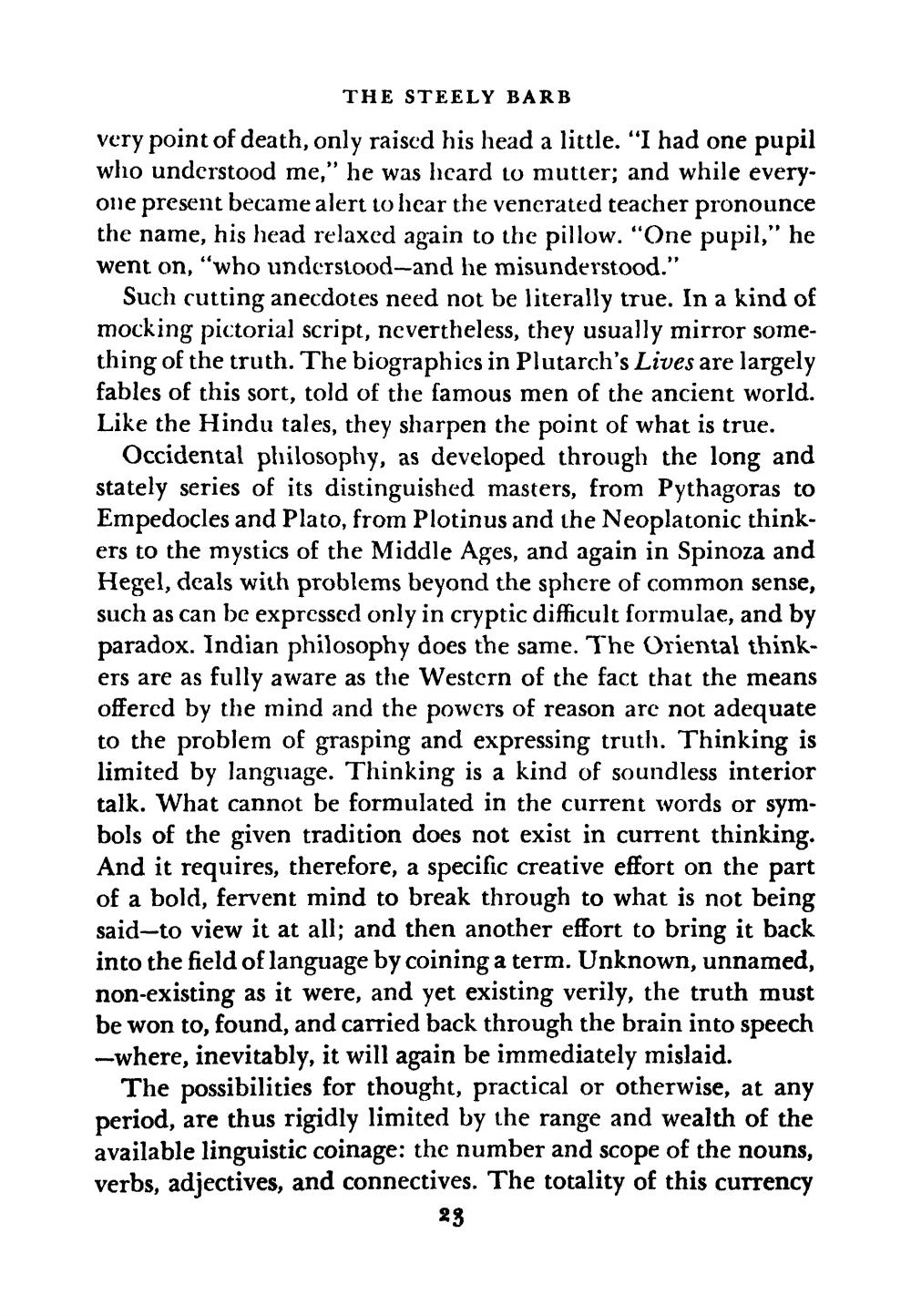________________
THE STEELY BARB
very point of death, only raised his head a little. “I had one pupil who understood me," he was heard to mutter; and while everyone present became alert to hear the venerated teacher pronounce the name, his head relaxed again to the pillow. "One pupil," he went on, “who understood-and he misunderstood.”
Such cutting anecdotes need not be literally true. In a kind of mocking pictorial script, nevertheless, they usually mirror something of the truth. The biographics in Plutarch's Lives are largely fables of this sort, told of the famous men of the ancient world. Like the Hindu tales, they sharpen the point of what is true.
Occidental philosophy, as developed through the long and stately series of its distinguished masters, from Pythagoras to Empedocles and Plato, from Plotinus and the Neoplatonic thinkers to the mystics of the Middle Ages, and again in Spinoza and Hegel, deals with problems beyond the sphere of common sense, such as can be expressed only in cryptic difficult formulae, and by paradox. Indian philosophy does the same. The Oriental thinkers are as fully aware as the Western of the fact that the means offered by the mind and the powers of reason are not adequate to the problem of grasping and expressing truth. Thinking is limited by language. Thinking is a kind of soundless interior talk. What cannot be formulated in the current words or symbols of the given tradition does not exist in current thinking. And it requires, therefore, a specific creative effort on the part of a bold, fervent mind to break through to what is not being said-to view it at all; and then another effort to bring it back into the field of language by coining a term. Unknown, unnamed, non-existing as it were, and yet existing verily, the truth must be won to, found, and carried back through the brain into speech -where, inevitably, it will again be immediately mislaid.
The possibilities for thought, practical or otherwise, at any period, are thus rigidly limited by the range and wealth of the available linguistic coinage: the number and scope of the nouns, verbs, adjectives, and connectives. The totality of this currency




